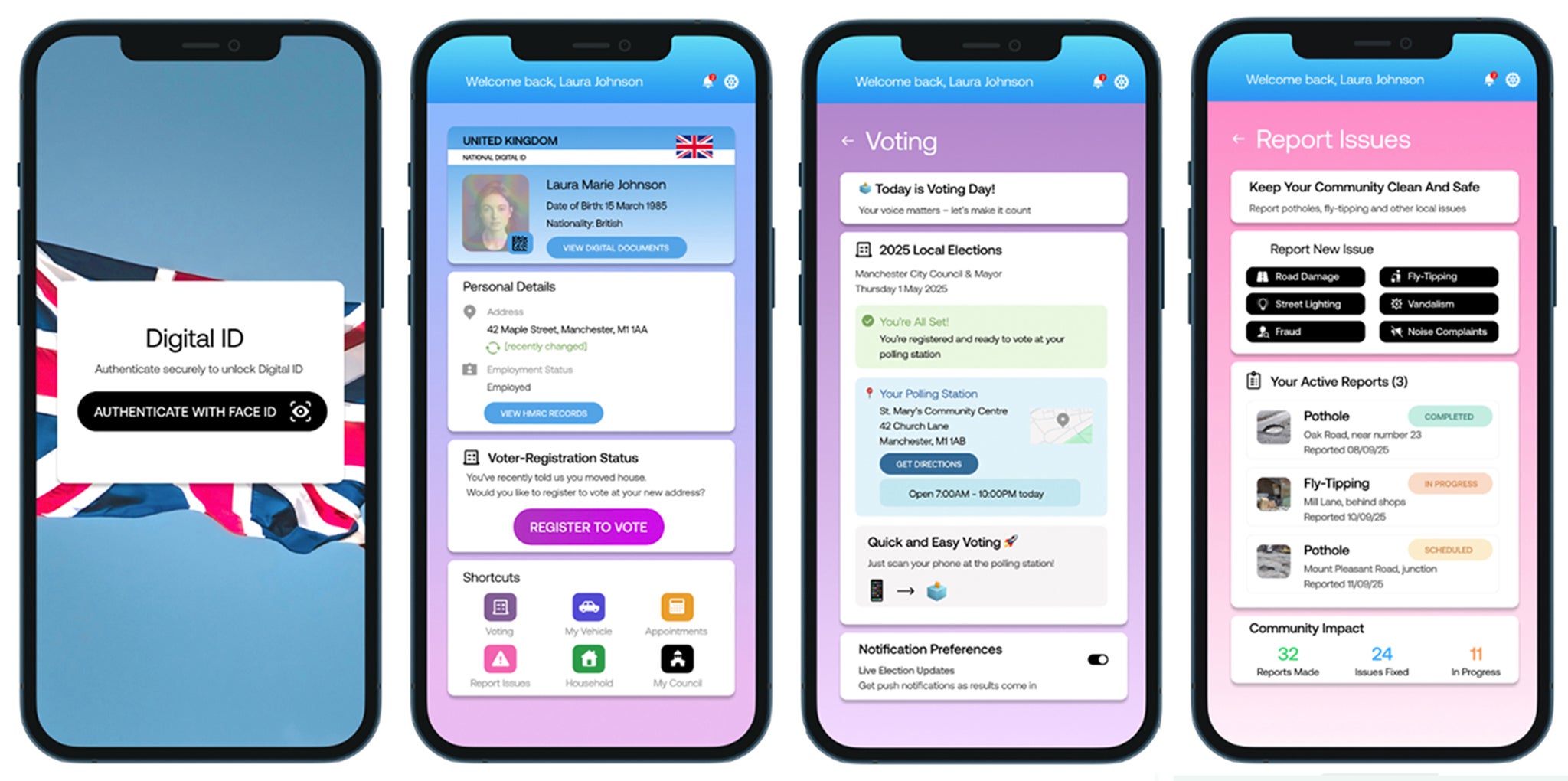Every adult in the country will be required to have a new government-issued digital identity card as part of a fresh attempt to tackle illegal migration.
The prime minister will announce his backing for the scheme in a speech on Friday, which would verify an individual’s right to live and work in the UK.
The so-called “Brit card” is expected to undergo a consultation and would then require legislation to implement it.
Earlier this year, the government began looking at proposals for some form of digital ID for adults in Britain, with the view that it could help to tackle illegal migrants who are working in the black economy.
They have looked to the example of Estonia, which uses a mandatory ID card system.

It comes amid mounting pressure on ministers to take more drastic action to tackle migration as boat crossings reach a record high and the asylum backlog is still above 75,000 – pressure which is exacerbated by the success of Reform UK in the polls.
However, this week the leaders of eight civil liberties groups warned that mandatory digital ID risks pushing “unauthorised migrants further into the shadows”.
Big Brother Watch’s interim director, Rebecca Vincent, was among those warning that rolling out a compulsory identification system could be “uniquely harmful to privacy, equality and civil liberties”.
Her organisation has garnered more than 101,000 signatures on a petition, calling on Sir Keir Starmer to reject proposals for a “Brit card”.
However, polling shows the public is broadly supportive of digital ID cards, with a survey conducted by More in Common in December finding that 53 per cent of people are in favour of a universal digital identification system, with 25 per cent strongly in favour. Just 19 per cent said they were against it.
Meanwhile, a report from Sir Tony Blair’s think tank published this week suggests there is growing public support for a “super-digital identity card” which would allow people to access public services and report problems in their local area.

The report, which surveyed more than 2,000 adults, saw 62 per cent of people say they favour introducing a form of digital ID alongside an app that would allow them to report things such as potholes and missed bin collections.
Lord Blunkett, who worked on the Blair government’s initial ID scheme twenty years ago, welcomed the decision to pursue a comprehensive digital ID scheme, saying its “time has come”.
“Age-verification to protect our children and young people; avoidance of exploitation by organised criminals abusing people in the sub economy; acting as a deterrent to unauthorised entry across the Channel and protection from fraud are just some of the benefits which could arise from a well-implemented programme”, he said.
“It is the unplanned, current mish-mash that presents a threat to people’s privacy as well as a risk of data breach, fraudulent stealing of identity and misuse.”
The former Labour home secretary argued that the introduction of digital identification “will have to be truly universal – consolidating a whole range of digital documentation used in everyday life”.
Meanwhile, TBI’s director of government unnovation, Alexander Iosad, said an announcement of universal digital ID “would be one of the most important steps taken by this or any government to make British citizens’ everyday lives easier and build trust”.
“How we experience government could be about to transform, for the better. Not only can Digital ID help us to tackle illegal migration, but done correctly and responsibly, it can open the door to a whole new model of services that come to you when you need them”, he added.
Earlier this month, home secretary Shabana Mahmood said she has “always been in favour of ID cards”.
Speaking to broadcasters, she added: “In fact, I supported the last Labour government’s introduction of ID cards. The first bill I spoke on in parliament was the ID cards bill, which the then Conservative-Lib Dem coalition scrapped.”
“I have a longstanding position of my own, which those who are familiar with my political track record will know that that is something that I’ve always supported”, she said.
The eight civil liberties groups, which include Liberty, Article 19, Connected by Data and the Runnymede Trust, warned that a move to introduce compulsory digital ID risked shifting “the balance of power towards the state with dangerous implications for our security, rights and freedoms”.
In their letter to Sir Keir, they wrote: “Mandatory digital ID is highly unlikely to achieve the government’s objective of tackling unauthorised immigration.
“The proposed schemes fundamentally misunderstand the ‘pull factors’ that drive migration to the UK and would do very little to tackle criminal people-smuggling gangs or employers and landlords who operate ‘off the books’.
“Instead, it would push unauthorised migrants further into the shadows, into more precarious work and unsafe housing.”
This is a breaking news story. More to follow…
